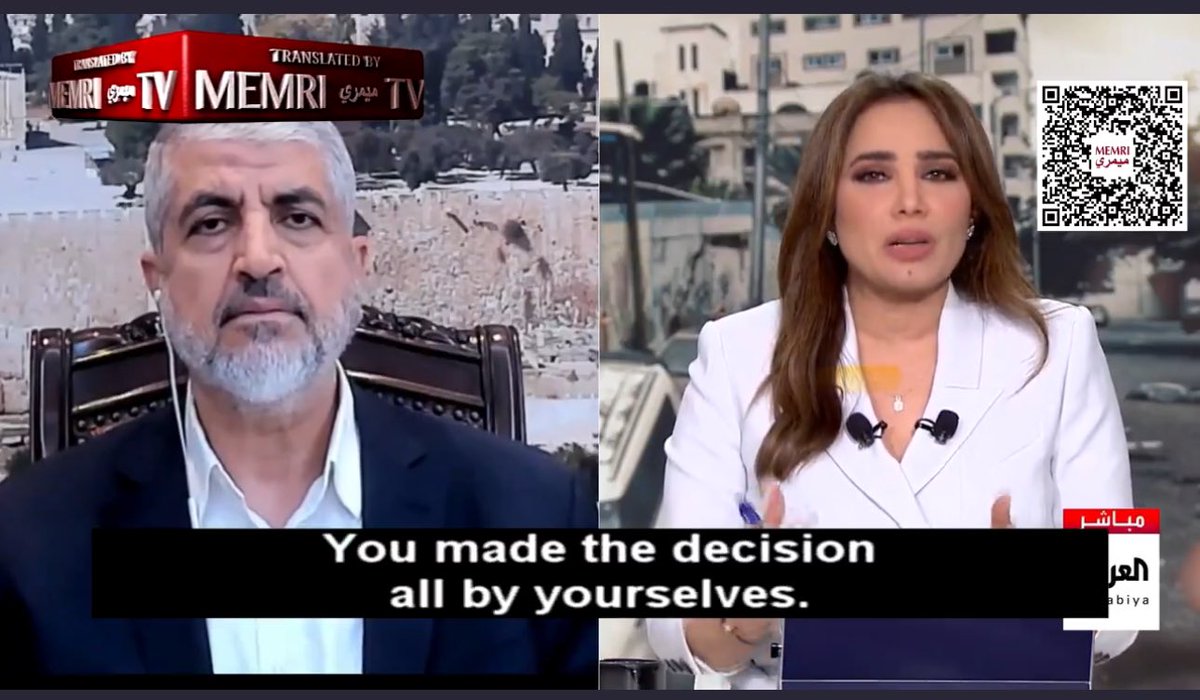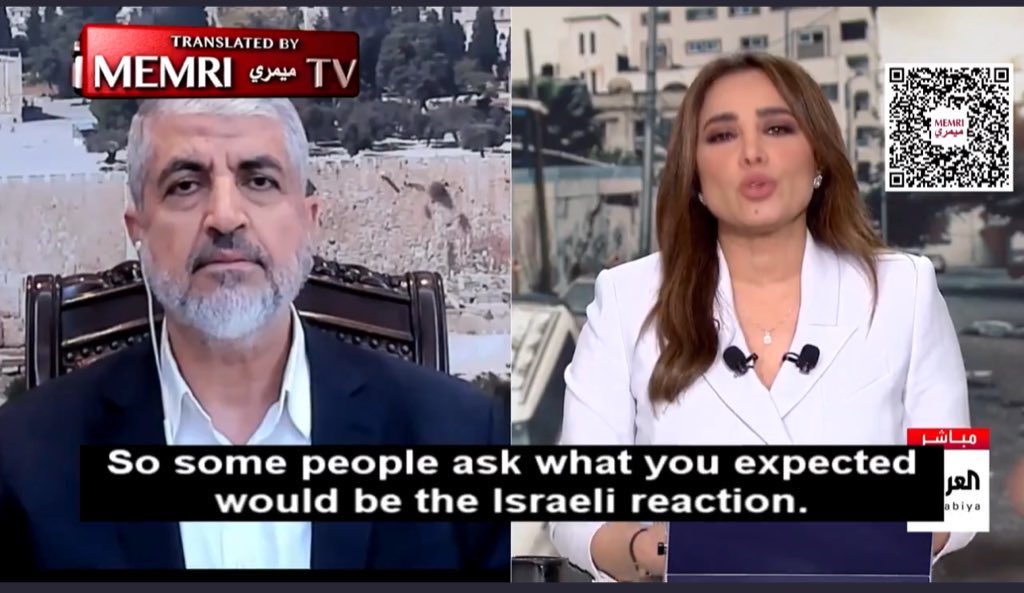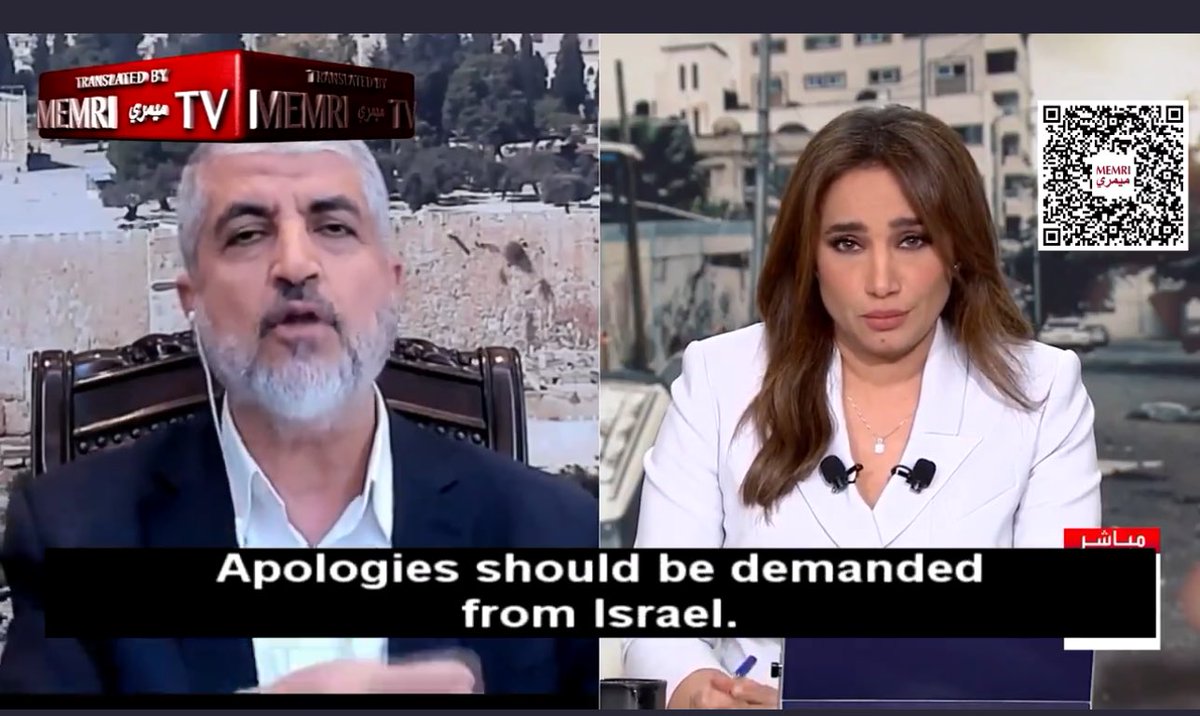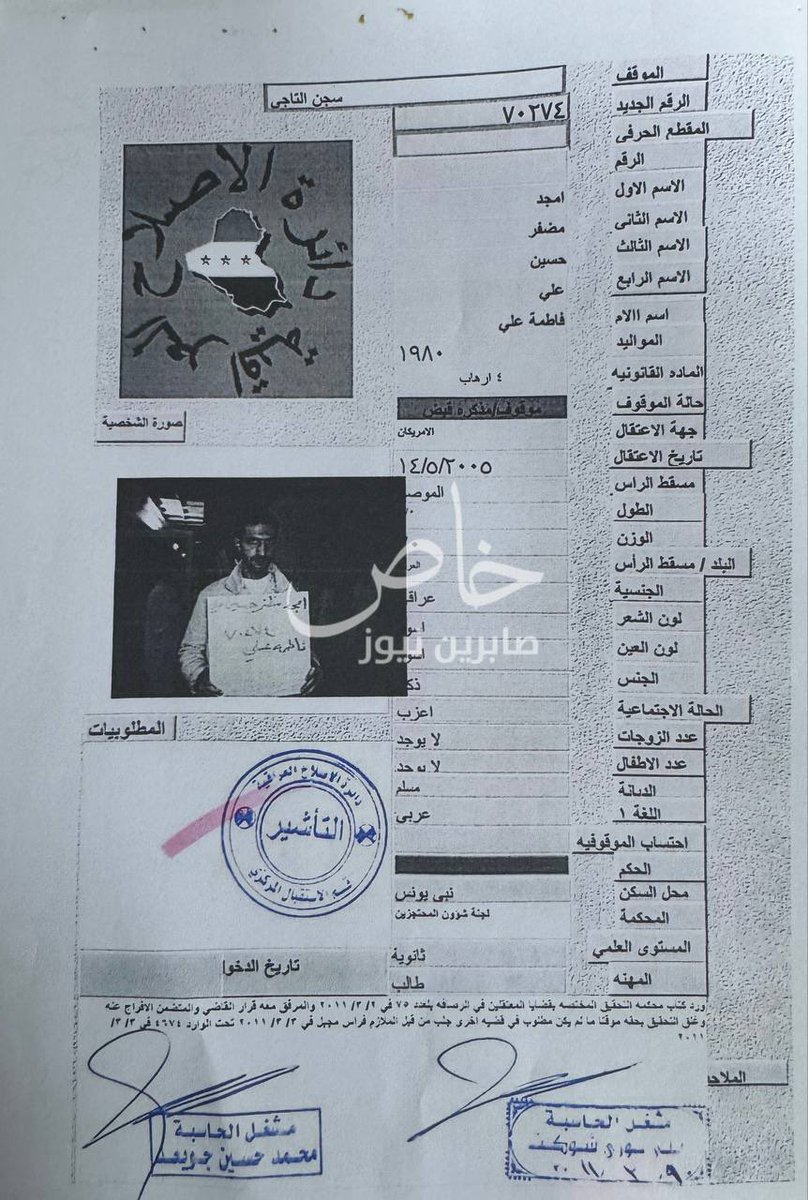I haven’t seen such relentless interrogation of Palestinian leadership before, esp. in Arabic.
On Saudi Arabia’s main TV channel, Hamas leader is clearly startled by the intensity of the questions & responses to his answers.
Crucial points in next tweets
On Saudi Arabia’s main TV channel, Hamas leader is clearly startled by the intensity of the questions & responses to his answers.
Crucial points in next tweets
One of the most significant ones to Hamas leader by the Saudi TV interviewer is why Hamas expects Arab countries to back them up when Hamas hadn’t consulted them before carrying out an operation akin to declaration of war.
‘You didn’t consult even fellow Palestinians.’


‘You didn’t consult even fellow Palestinians.’


The interview is clearly very strategic, & can further reveal where Saudi Arabia stands on the issue.
A repeated question throughout is about Hamas expecting others to join in despite it making a unilateral decision it knew would have Israel respond with unprecedented brutality




A repeated question throughout is about Hamas expecting others to join in despite it making a unilateral decision it knew would have Israel respond with unprecedented brutality




Another key question is why your backers in Iran and Hizbollah didn’t intervene or back you back as you expect other countries to do so.
“Did Iran do what you expected it to do?”




“Did Iran do what you expected it to do?”




The final point is one you just wouldn’t expect to hear on an Arabic television channel, accusing Hamas of being ISIS, of making the world sympathize with the Israelis and that Israel reacted to Hamas targeting of civilians.








A gaffe by Hamas leader is to dismiss civilian casualties as a natural consequence of wars. Something we’ve heard from the Israelis to justify the killing of civilians in Gaza (Hamas has previously blamed civilians in Gaza for the killings of Israeli civilians on Oct 7.)








Here is where Hamas threw the innocent people of Gaza under the bus in its attempt to excuse the targeting of civilians
https://twitter.com/hxhassan/status/1712832999916466355
We had a few important stories to make sense of this conflict, some on the way next week. Follow @newlinesmag, and sign up to receive our *free* essays (one essay a day, or all once a week) newlinesmag.com/become-a-membe…
• • •
Missing some Tweet in this thread? You can try to
force a refresh

























